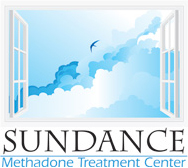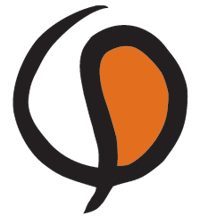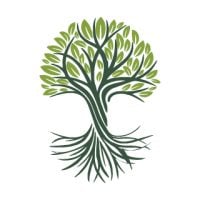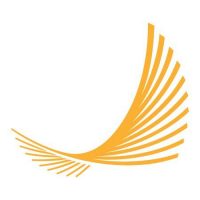American Indian Health Service of Chicago
Drug Rehab Center in Chicago, Illinois
American Indian Health Service of Chicago offers comprehensive health care services, including addiction and substance abuse treatment, to the Native American community in Chicago and its suburbs, with a focus on cultural sensitivity and traditional healing services.
About This Chicago, IL Facility
American Indian Health Service of Chicago is a comprehensive health care facility and community center dedicated to serving the individual and cultural needs of the Native American community in Chicago. Founded in 1972, this not-for-profit organization provides comprehensive health care services, including addiction treatment, to American Indian and Alaskan Native people living in the city and its suburbs. American Indian Health Service also offers ancillary services and programs, including physical, mental and spiritual health services, social and vocational services, as well as traditional healing services.
American Indian Health Service of Chicago is committed to providing specialized and culturally-sensitive addiction and substance abuse treatment to the Native American community. They provide a wide range of therapeutic services that address the physical, psychological, and spiritual aspects of addiction. Some of these services include detoxification, medication-assisted treatment, individual counseling, family counseling, and relapse prevention. In addition, the health center offers counseling and support groups, traditional healing ceremonies, and other wraparound services to help individuals recover and stay on the path to sobriety.
American Indian Health Service of Chicago is licensed by the State of Illinois as a Medicaid and Medicare provider, which enables the center to provide care to an even larger population. They also have a number of accreditations and certifications from various organizations, such as the Commission on Accreditation of Rehabilitation Facilities, the Joint Commission, and The Joint Commission on Accreditation of Healthcare Organizations. The center has also received a number of awards and recognitions, including the 2017 National American Indian Youth Leadership Award as well as the Chicago Indian Community Service Award.
Genders
Ages
Modality
Additional
Conditions and Issues Treated
Rehab centers exist in Chicago, IL to help individuals bounce back from substance abuse, which is an umbrella term for drug and alcohol addiction. Drug addiction refers to the use of illegal drugs and improper use of prescription drugs. Centers like American Indian Health Service of Chicago provide individuals a chance to access individual and group therapy that can be monumental for recovery.
Substance abuse includes all problems that stem out from using various psychoactive substances. It is also a diagnostic term used by Diagnostic and Statistical Manual of Mental Disorders (DSM-IV) to define the mental and physical impairment or distress caused by misuse and overuse of certain substances in a period of 12 months.
Opioid addiction involves addiction to legal or illegal opioids. It may happen very quickly with any opioid use. Sometimes within a matter of days. Opioid addiction is a known as a high-risk factor for future heroin addiction.
Opioid withdrawal can be extremely uncomfortable and lead the user to continue to use even if they want to quit. Stopping using an opioid requires careful medical observation. Sometimes the withdrawal can persist for many weeks, which can put the user at a high risk for relapse.
It is recommended to receive inpatient treatment and a medically supervised detox like those offered at American Indian Health Service of Chicago in Chicago, IL, IL, to manage the withdrawal process while learning lasting tools to maintain recovery. In some circumstances medications can be used to manage opioid addiction.
Levels of Care Offered
This center offers a variety of custom treatment tailored to individual recovery. Currently available are Aftercare Support, Drug Rehab, Outpatient, with additional therapies available as listed below.
Outpatient treatment is treatment that occurs when a patient is not checked into a rehab facility. The patient may show up for therapy sessions, go through detox and engage in other therapies to help them recover. However, they will do so while they live at home in Illinois.
Outpatient therapy provided by American Indian Health Service of Chicago is usually recommended as a follow up to inpatient therapy. It helps patients adapt to their normal lives after treatment. In some cases, it can also be an alternative to inpatient treatment. People may choose this route if they are unable to leave their jobs, children or if they don’t have the money for inpatient treatment. However, inpatient treatment is the best way to recover from addiction.
Aftercare support involves the support given to a Chicago, Illinois patient after they complete treatment. It helps them adjust to normal life. It may include setting them up in a halfway house and enrolling them in programs like Narcotics Anonymous (NA) and Alcoholics Anonymous (AA). American Indian Health Service of Chicago‘s patients may also be provided with career training to help them get back into the job force.
American Indian Health Service of Chicago‘s Therapies & Programs
Couples therapy is an approach wherein the patients and their partners are engaged together as a part of the treatment process. When a person becomes a victim of substance abuse, it affects the patient and the people around him, particularly his partner. Their relationship can become strained due to lack of communication, financial issues, loss of trust, lack of intimacy, and physical abuse in more severe cases.
Couples therapy addresses these issues and tries to rebuild the trust between the partners. The partner’s involvement in the process will result in greater chances of treatment success and sustained recovery.
Family therapy is a set of therapeutic approaches that assumes that the entire family is a system. It utilizes the strengths and resources of the family to help the patient refrain from resorting to substance abuse. It helps to repair relationships and improve communication between family members.
Group therapy happens at American Indian Health Service of Chicago in a controlled group environment, as opposed to a one-on-one setting. It supports Chicago, IL patients’ recovery by offering a sense of comfort and letting them know that they are not alone. Through shared conversations, patients also learn to develop faith and understanding and gain insight on their addictions.
Unresolved trauma is often a key reason why many patients resorted to substance abuse. Trauma therapy refers to treatment wherein specialist therapists help the patients to resolve the trauma that led the patients to substance abuse. The trauma could be physical abuse, sexual abuse, war, natural disasters, divorce, accident, loss of a loved one, etc. Thinking of these traumatic events causes emotional disturbances like anxiety, depression and results in addiction. If trauma is the primary cause of substance abuse, then both issues must be addressed. Otherwise, there is a risk of relapse. Trauma therapy also improves the cognitive functions and provides long term benefits.
Dialectical Behavior Therapy (DBT) is an improved version of Cognitive Behavioral Therapy (CBT). DBT is a treatment of choice for people suffering from self-harming behaviors characterized by cutting and suicidal thoughts or inclinations.
This treatment is developed to help individuals recognize their thought patterns, behaviors, and feelings. It has demonstrated its effectiveness for people that are finding it difficult to control their emotions and urges. Conditions such as obsessive-compulsive disorder and borderline personality disorder also benefit from DBT as it imparts individuals stress-management techniques and enhanced self-esteem so they can sustain their sobriety by reducing the impact of triggers and out-of-control emotions.
Cognitive behavioral therapy (CBT) is a way of addressing concerns through talking. It can be used in individual counseling sessions. Talking through issues with professionals at American Indian Health Service of Chicago can identify sources of discomfort or unhealthy thoughts. It is a way of learning about yourself and your individual perceptions. CBT is a healthy way of addressing some behaviors which may be bringing unintended consequences in your life.
Payment Options Accepted
For specific insurance or payment methods please contact us.
Is your insurance accepted?
Ask an expert, call (888) 674-0062
Additional Details
Specifics, location, and helpful extra information.
Chicago, Illinois 60613 Phone Number(773) 883-9100 Meta DetailsUpdated November 25, 2023
Staff Verified
Patient Reviews
There are no reviews yet. Be the first one to write one.
Chicago, Illinois Addiction Information
In 2016, more than 2,350 Illinoisans died from drug overdoses. More than 5,500 deaths annually occur in Illinois due to the abuse of alcohol and other drugs. 7.17% of Illinois residents reported using illicit drugs in the past month (2018). Substance abuse costs the state approximately $3.5 billion every year.
Drug misuse can lead to other serious health problems, including HIV/AIDS or hepatitis C infection and liver disease. Chicago's main drugs of abuse include heroin, cocaine, and methamphetamine. Field sobriety tests can be used to determine if someone is driving under the influence of drugs or alcohol. There are about 872 drug treatment centers in the city, and the number of people seeking help for addiction continues to rise.
Treatment in Nearby Cities
- McHenry, IL (40.9 mi.)
- Palos Hills, IL (19.9 mi.)
- Vienna, IL (321.0 mi.)
- Jerseyville, IL (241.4 mi.)
- Kewanee, IL (127.4 mi.)
Centers near American Indian Health Service of Chicago
The facility name, logo and brand are the property and registered trademarks of American Indian Health Service of Chicago, and are being used for identification and informational purposes only. Use of these names, logos and brands shall not imply endorsement. RehabNow.org is not affiliated with or sponsored by American Indian Health Service of Chicago.






